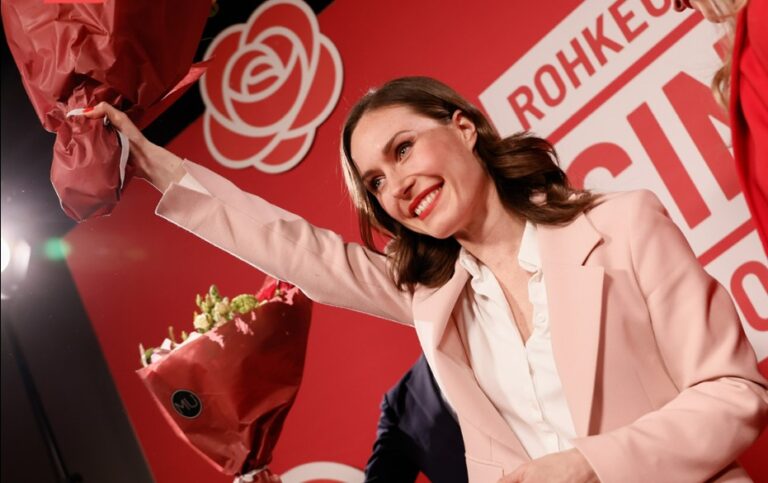In the dynamic world of politics, leadership plays a vital role in shaping a nation’s future. Some young leaders have defied expectations by ascending to the highest positions of power at an early age, although experience and wisdom often associate leadership with them.
When the world of politics introduces some leaders in their 40s, they rule at the top at the same age. We will explore the lives and achievements of the youngest national leaders in the world, highlighting their remarkable journeys and the impact they have made on their respective countries.
Table of Contents
1. Justin Trudeau
In 2015, Canada chose Justin Trudeau as its current prime minister. He is one of the youngest leaders in the world and the second youngest Prime Minister of Canada. At the age of 43, Justin Trudeau took the oath for this prestigious position of Prime Minister.
His contribution is immense to improving the economy of Canada and building an economy that works for the middle class. The liberal government built by Trudeau took the first action to cut taxes for the middle class while asking the wealthiest Canadians to pay a bit more. His strategies and initiatives against the climate crisis inspired the world toward a greener future.
2. Jigme Khesar Namgyel Wangchuck
Khesar is the present Dragon King or locally known as Druk Gyalpo, of the kingdom of Bhutan. He came into power at a very young age of 26. The King and Queen’s captivating presence frequently graces the pages of magazines and news articles, showcasing their photogenic allure.
One of his main objectives during his reign is to enhance democracy within his country. He has made outstanding contributions to developing the democracy and economy of Bhutan. The tourism economy was boosted under his rule.
3. Nikol Pashinyan
Nikol Pashinyan, the Prime Minister of Armenia, is known for his activism and role in the Velvet Revolution. Pashinyan rose to power in 2018 at the age of 43, leading a wave of protests against corruption and government inefficiency.
His rise to power symbolized the aspirations of the Armenian people for a more transparent and accountable government. Pashinyan characterizes his leadership style with his grassroots approach and determination to bring about positive change.
4. Sanna Marin
Sanna Marin became the Prime Minister of Finland at the age of 34. She was elected as the third female prime minister and is considered the youngest of all. Coming from a humble background, she worked her way up through education and actively participated in politics from a young age.
She is responsible for holding the shape of the health and finance of Finland during COVID-19, and the world praised her for her tremendous efforts.
5. Jacinda Ardern
Jacinda Ardern, the Prime Minister of New Zealand, has earned widespread recognition for her empathetic and compassionate leadership. Ardern assumed office in 2017 at the age of 37 and has since gained international acclaim for her handling of crises, including the Christchurch mosque shootings and the COVID-19 pandemic.
Ardern’s leadership style, rooted in kindness, inclusivity, and progressive policies, makes her a role model for young leaders around the world. She was PM of New Zealand until her recent resignation.
6. Leo Varadkar
Leo Varadkar is the youngest Prime Minister in the history of Ireland. Apart from his prestigious honor, he is a big representative of the gay community. He holds the distinction of being Ireland’s inaugural openly gay Taoiseach (Prime Minister), as well as the first prime minister of South Asian heritage in the country’s history.
Before being elected as the Prime Minister, he served in various ministries, including health, transport, sports, etc. Varadkar has had a keen interest in politics from an early age, expressing his aspiration to become the Minister for Health when he was around 7 or 8 years old.
7. Sebastian Kurz
Sebastian Kurz, the Chancellor of Austria, is yet another example of a young leader who has made a mark in politics. Kurz became Austria’s youngest-ever Chancellor in 2017 at the age of 31. He fueled his rise to power through his reputation as a reformer and his ability to connect with younger voters. Kurz has implemented a range of reforms focused on immigration, economic growth, and social welfare, making him a significant force in European politics.
Young national leaders are a mark to the evolving landscape of politics
The rise of young national leaders is a testament to the evolving landscape of politics and the increasing influence of the younger generation.
These individuals have defied age stereotypes and brought fresh perspectives to the table, driving change and inspiring others. Their stories highlight the importance of inclusivity, determination, and the potential for impactful leadership at any age.
Read also: Who are the most followed world leaders on TikTok? The ranking












